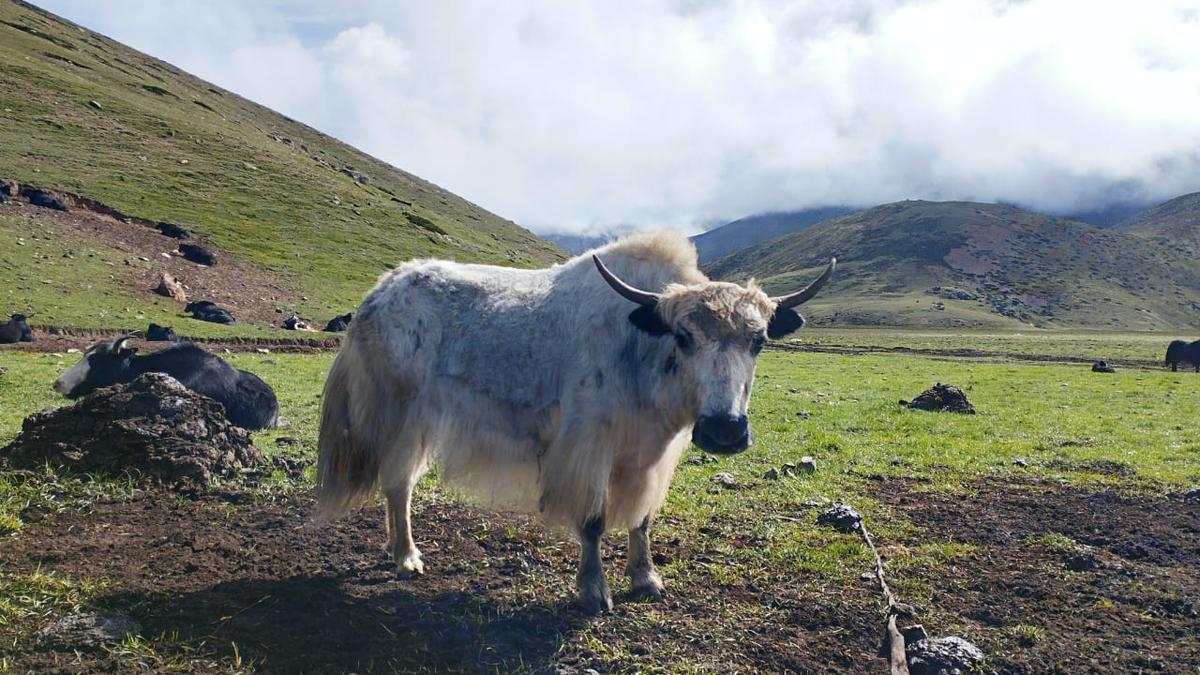The Indian yak in the mountains of Arunachal Pradesh.
| Photo Credit: Special Arrangement
Specialists from four institutions of the Indian Council of Agricultural Research (ICAR) have assembled the first-ever chromosome-level genome of the Indian yak.
The Indian yak (Bos grunniens), often called the ‘ship of the Himalayas’, is an integral part of the economy of high-altitude dwellers, who depend on it for meat, milk, and transportation. The bovine animal has long been recognised for its resilience and adaptability to extreme conditions.
Mihir Sarkar, the director of ICAR-National Research Centre on Yak in Arunachal Pradesh’s Dirang, said the “leap for yak genomic science“ marks a significant milestone that promises to revolutionise yak breeding programmes, conservation efforts, and the understanding of the genetic complexities of this vital species and its ecological role in the Himalayan landscape.
Along with Martina Pukhrambam and Vijay Paul, he led the genomic research for the ICAR-NRC on Yak. Sujay Rakshit, A.K. Mohanty, and Y.G. Prasad, the directors of the Ranchi-based ICAR-Indian Institute of Agricultural Biotechnology, the Meerut-based ICAR-Central Institute for Research on Cattle, and the Nagpur-based ICAR-CIRC, led their respective research teams for the project.
The research team utilised cutting-edge long-read sequencing technology and bioinformatics tools to generate the chromosome-level assembly, which maps the genes to their specific locations on the chromosomes, offering a significantly clearer and comprehensive picture.
“A comparative genomics between other bovine species with the generated data will open up allele mining for useful genes contributing to biotic and abiotic stresses and quality traits. The availability of a detailed genome is expected to benefit scientific research and local livestock management practices,” Dr. Rakshit said.
“With this genome, we can better understand how to sustain yak populations across the Himalayan belt,” Dr. Mohanty said.
Dr. Sarkar underscored the need for a concerted effort to translate these findings into practice, especially in conservation and sustainable development.
“This resource will be invaluable for identifying genetic markers for traits like cold tolerance, disease resistance, and milk production with much greater precision, which will ensure the long-term sustainability of yak populations and ultimately lead to the socio-economic uplift of yak herders,” Dr. Pukhrambam said.
In India, yaks are found above 7,000 feet in Ladakh, Sikkim, Arunachal Pradesh, and Himachal Pradesh. They face numerous challenges, including reduced grazing area, climate change, disease, and genetic erosion.
Published – May 14, 2025 10:36 pm IST
